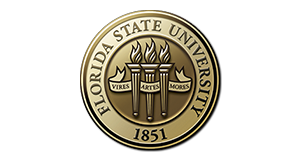Florida State University Search
Major Project Funding Process
Funding for Major Projects (projects that exceed $4,000,000 in construction cost) is appropriated/authorized by the Legislature. The primary sources are Public Education Capital Outlay, which is derived from the gross receipt taxes on utilities, and Capital Improvement Fees, which is derived from student fees paid as a part of tuition.
Public Education Capital Outlay (PECO)
Florida Statutes require the development of a 3 year plan and a 5 year plan for fixed capital outlay expenditures. The 5 year plan is an expenditure plan which includes all university needs for the next five years, and does not take funding limitations into consideration. The 3 year plan does take funding into consideration, so the two plans can be quite different. The Board of Regents (BOR) calls for the annual submission of the university's budget request (usually in May). The Campus Development and Space Committee (CDSC) develops a recommended 5 year plan and submits its recommendation to the President. Once approved by the President, the request is submitted to the BOR staff. The BOR staff combines the requests from the ten State University System (SUS) institutions and prepares a systemwide 3 year plan and a 5 year plan for the review of the Council of Presidents. The presidents meet and make their recommendations to the Regents. The 3 year plan approved by the Regents becomes the State University System legislative budget request.
Capital Improvement Fee (CIF)
Student fees for capital improvements are collected at the time of registration for classes. These fees serve as a source of revenue that the State of Florida pledges against bonds. As bonds are paid off and fees continue to accumulate, more bonds are issued. This cyclical process causes proceeds to become available periodically. The BOR notifies the University when funding is expected to become available (typically every several years). Upon receiving such notification, the Division of Student Affairs solicits input from the University community. The Vice President for Student Affairs appoints a Capital Improvement Trust Fund (CITF) Advisory Committee to recommend suitable projects based on the amount of funds expected to become available. These recommendations are reviewed by the President of the Student Government Association and the Vice President for Student Affairs, who forwards the list of projects to the CDSC for their consideration. The CDSC makes its recommendation to the President, who then submits the University's request to the Board of Regents. The request is then processed in the same manner as described above for PECO.





